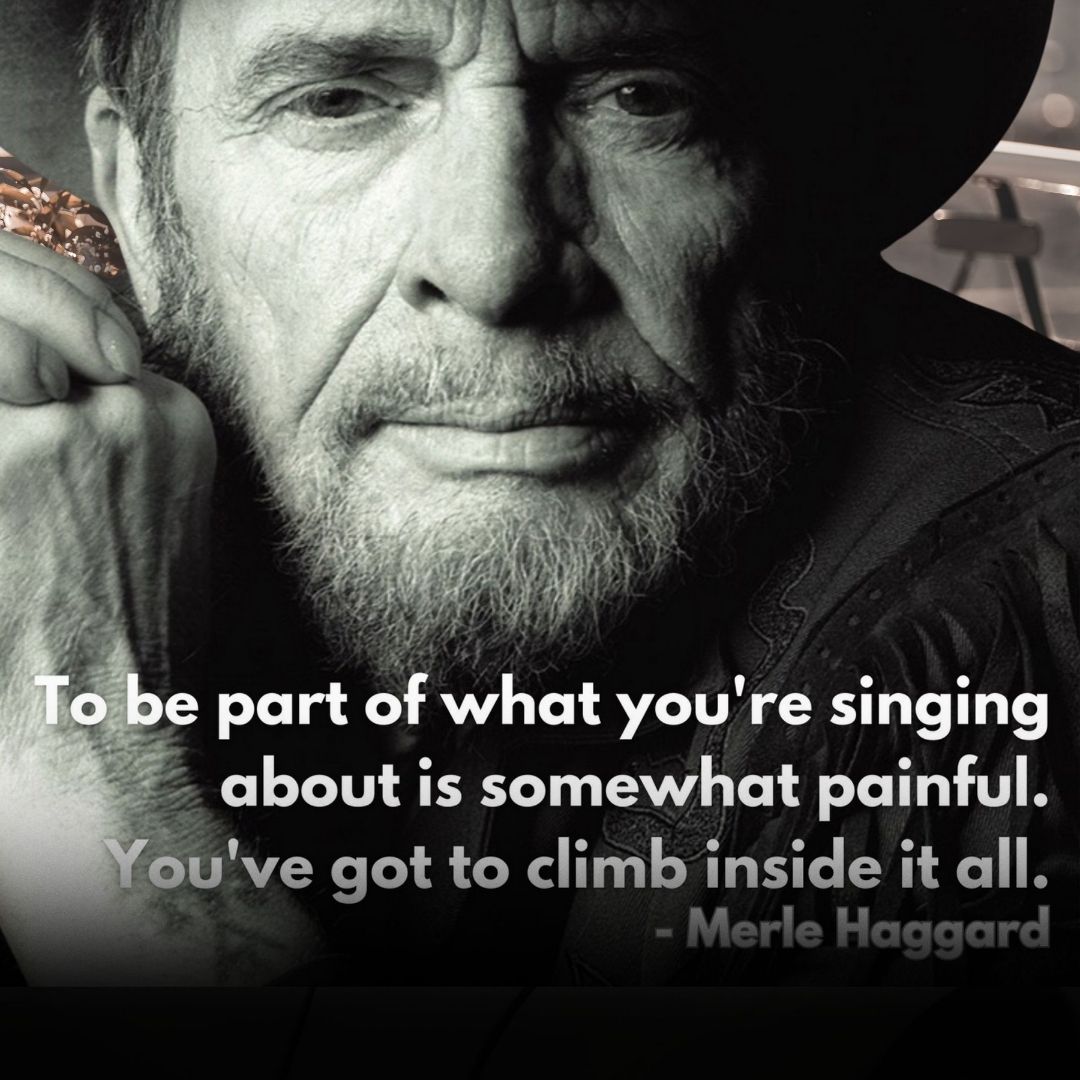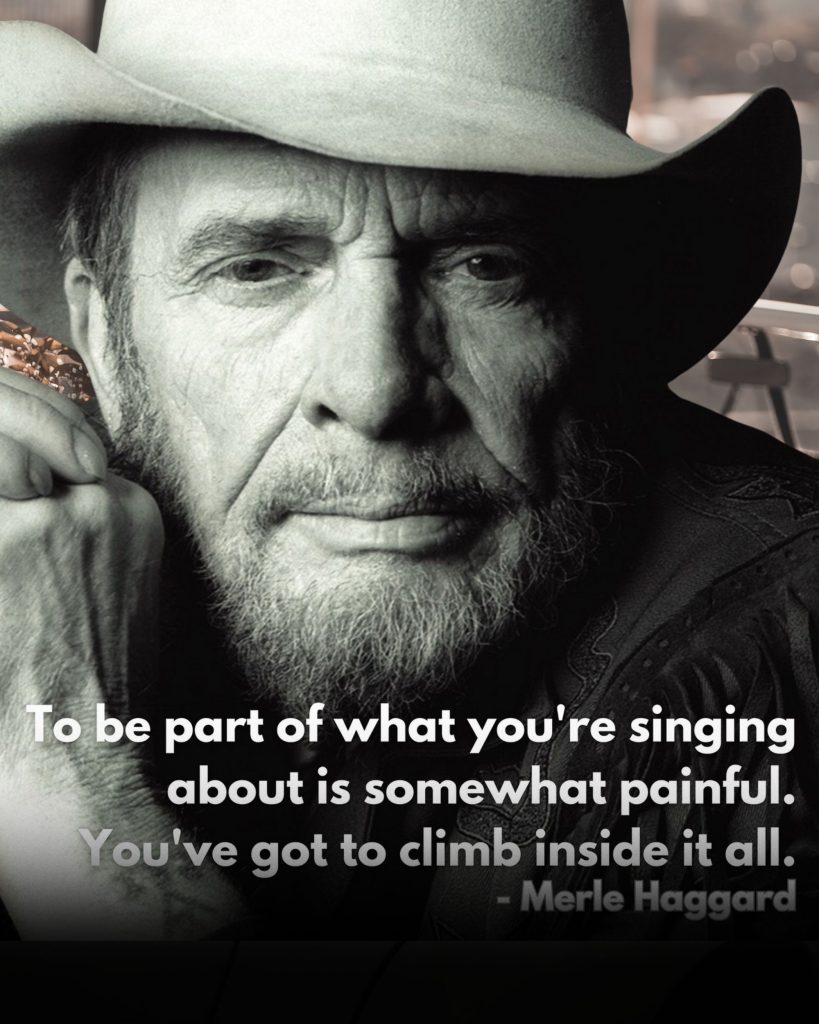Introduction
I remember the first time I heard Merle Haggard’s voice crackle through an old radio in my grandfather’s truck, the dusty Texas air blending with the twang of his guitar. It was “If I Could Only Fly,” a song that felt like it carried the weight of a life lived hard and the hope of something softer. That moment stuck with me, not just for the melody but for the way Haggard seemed to sing straight from his soul. This song, released in 2000, isn’t just a track on an album—it’s a window into a man wrestling with his past and dreaming of freedom.
About The Composition
- Title: If I Could Only Fly
- Composer: Blaze Foley (original songwriter), covered by Merle Haggard
- Premiere Date: 2000 (album release)
- Album/Opus/Collection: If I Could Only Fly (Merle Haggard’s 50th studio album)
- Genre: Country, with elements of folk and Americana
Background
Drawing from the Wikipedia entry, If I Could Only Fly is Merle Haggard’s 50th studio album, released in 2000, with the title track being a cover of a 1979 song by Texas songwriter Blaze Foley. Haggard had previously recorded it as a duet with Willie Nelson in 1987 for their album Seashores of Old Mexico, but his solo rendition in 2000 carries a deeper, more introspective weight. The 1990s were a rough decade for Haggard—bankruptcy in 1993, struggles with record label Curb, and albums that didn’t chart as high as his earlier work. Yet, personally, he was in a better place, having overcome drug and alcohol addiction and married his fifth wife, Teresa Lane. The song’s inception for Haggard seems tied to this dichotomy: a man reflecting on his turbulent past while finding stability. Critics, like Ryan Kearney of Pitchfork, compared the album favorably to Bob Dylan’s Time Out of Mind, noting its meditations on aging and mortality. Ben Ratliff of Rolling Stone gave it four stars, praising Haggard’s lyrical prowess as he portrayed an “aging, cloistered singer” whose routine—staying sober, cherishing simple comforts—was his lifeline. The album reached number 26 on the Billboard Country Albums chart, a modest but respectable showing for a veteran artist in a changing industry. In Haggard’s vast repertoire, this song stands out as a late-career gem, showcasing his ability to find new depth in someone else’s words.
Musical Style
“If I Could Only Fly” is a masterclass in understated country storytelling. The song’s structure is simple—a verse-chorus form that lets the lyrics breathe—but its power lies in Haggard’s delivery and the spare instrumentation. Acoustic guitar anchors the track, with gentle steel guitar slides adding a mournful texture. There’s no flash here, just a raw, lived-in quality that feels like a conversation. Haggard’s voice, weathered yet tender, carries the melody with a mix of resignation and yearning. The tempo is slow, almost meditative, allowing each phrase to linger. The production avoids overpolishing, preserving the folk-like intimacy that Blaze Foley originally intended. This simplicity amplifies the song’s emotional impact, making it feel like a confession rather than a performance.
Lyrics/Libretto
The lyrics, penned by Blaze Foley, are poetic in their economy: “If I could only fly / I’d bid this place goodbye / To come and be with you.” They speak of longing for escape, not just from a physical place but from the burdens of life—regret, loss, and the passage of time. Haggard’s interpretation adds layers of personal resonance. When he sings, “I’m older now, and I’m feeling my years,” you hear a man who’s faced down demons and come out the other side. The imagery of flight symbolizes freedom, love, and perhaps reconciliation, themes that dovetail with Haggard’s own journey of redemption. The music supports this narrative with its gentle sway, like a breeze carrying the singer’s hopes skyward. The interplay between the lyrics and Haggard’s vocal phrasing creates a sense of authenticity, as if he’s lived every word.
Performance History
While specific performance details for “If I Could Only Fly” are less documented, Haggard’s live shows in the 2000s often included tracks from this album, especially the title song, which resonated with audiences for its vulnerability. The song’s inclusion in his setlists underscored its importance as a late-career statement. Unlike some of his earlier hits like “Okie from Muskogee,” which sparked cultural debates, this track was more personal, connecting with fans through shared experiences of aging and reflection. Its critical reception, as noted by Pitchfork and Rolling Stone, cemented its place as a standout in Haggard’s catalog, even if it didn’t dominate the charts like his 1970s work. In the broader country music canon, it’s a quiet but powerful entry, often cited by fans and critics as a highlight of his later years.
Cultural Impact
Beyond country music, “If I Could Only Fly” has found a niche in Americana and folk circles, thanks to Blaze Foley’s cult status and Haggard’s enduring influence. The song’s themes of longing and redemption resonate universally, making it a favorite for covers and tributes. Its raw honesty has inspired songwriters who value storytelling over commercial gloss. While it hasn’t been widely used in film or media, its inclusion in documentaries about Haggard or Foley—like Blaze Foley: Duct Tape Messiah—has kept it alive for new generations. The song also reflects a broader cultural shift in country music toward introspection in the late 1990s and early 2000s, paving the way for artists like Chris Stapleton who prioritize authenticity. Haggard’s version, in particular, bridges the gap between traditional country and the singer-songwriter movement, showing how a cover can become as iconic as the original.
Legacy
“If I Could Only Fly” endures because it’s timeless—not in a flashy, chart-topping way, but in its quiet truth. It captures the universal ache for something just out of reach, whether it’s love, peace, or a second chance. For Haggard, it was a late-career triumph, proving he could still deliver with the same heart that made him a legend. Today, it remains relevant for anyone grappling with life’s highs and lows, a reminder that even weathered wings can dream of flight. Its place in Haggard’s legacy is secure as a testament to his ability to evolve while staying true to his roots. For new listeners, it’s a gateway to understanding why Haggard is called the “poet of the common man.”
Conclusion
Listening to “If I Could Only Fly,” I’m struck by how it feels like a friend who’s been through it all and still has hope to share. Haggard’s voice, rough around the edges, carries a warmth that invites you in. I urge you to give it a spin—try the album version from 2000 or seek out a live recording to hear how he poured himself into it night after night. For a starting point, the original album on streaming platforms like Spotify or YouTube is a great way to experience its raw beauty. Better yet, find a quiet moment, let the song wash over you, and see where it takes your heart. What’s your dream of flying? Let Haggard show you it’s never too late to chase it
Video
Lyrics
I almost felt you touching me just now
I wish I knew which way to turn and go
I feel so good, and then then I feel so bad
I wonder what I ought to do
If I could only fly, if I could only fly
I’d bid this place goodbye, to come and be with you
But I can hardly stand, and I got no where to run
Another sinking sun, and one more lonely night
The wind keeps blowing somewhere everyday
Tell me things get better, somewhere, up the way
Just dismal thiking on a dismal day
Sad songs for us to bare
If I could only fly
If we could only fly
If we could only fly
There’d be no more lonely nights
You know sometimes I write happy songs
Then some little thing goes wrong
I wish they all could make you smile
Coming home soon and I wanna stay
Maybe we can somehow get away
I wish you could come with me when I go again
If I could only fly, if I could only fly
I’d bid this place goodbye, to come and be with you
But I can hardly stand, and I got no where to run
Another sinking sun, and one more lonely night

